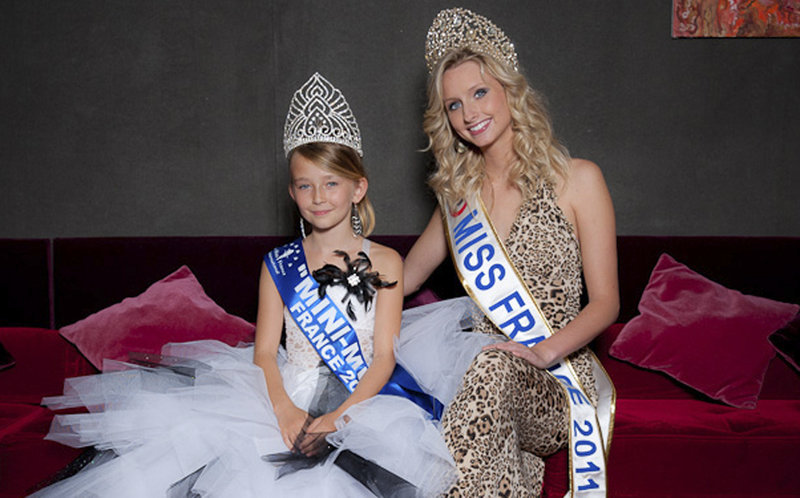PARIS – Child beauty pageants may soon be banned in France, after a surprise vote in the French Senate that rattled the pageant industry and raised questions about how the French relate to girls’ sexuality.
Such contests, and the made-up, dolled-up beauty queens they produce, have the power to both fascinate and repulse, and have drawn criticism in several countries. France, with its controlling traditions, appears to be out front in pushing an outright ban.
French legislators stopped short of approving a measure banning anyone under 16 from modeling products meant for grown-ups — a sensitive subject in a country renowned for its fashion and cosmetics industries, and about to host Paris Fashion Week.
The proposed children’s pageant amendment sprouted from a debate on a women’s rights law. The legislation, approved by a vote of 197-146, must go to the lower house of parliament for further debate and another vote.
Its language is brief but sweeping: “Organizing beauty competitions for children under 16 is banned.” Violators — who could include parents, or contest organizers, or anyone who “encourages or tolerates children’s access to these competitions” — would face up to two years in prison and $40,000 in fines.
The legislation doesn’t specify whether it would extend to things such as online photo competitions or pretty baby contests.
Although child beauty pageants are not as common in France as in the U.S., girls get the message early here that they are sexual beings, from advertising and marketing campaigns, and even from department stores that sell lingerie for girls as young as 6.
The U.S. has also seen controversy surrounding child beauty pageants and reality shows such as “Toddlers & Tiaras.” Such contests gripped the public imagination after the 1996 death of 6-year-old beauty queen JonBenet Ramsey, as images of her splashed over national television and opened the eyes of many to the scope of the industry.
“We are talking about children who are only being judged on their appearance, and that is totally contrary to the development of a child,” the French amendment’s author, Chantal Jouanno, told The Associated Press. “The question of the hyper-sexualization is deeper in the United States than in France, but the levees are starting to fall. Before we are hit by the wave, the point is to say very clearly: ‘Not here.’“
Copy the Story Link
Send questions/comments to the editors.



Success. Please wait for the page to reload. If the page does not reload within 5 seconds, please refresh the page.
Enter your email and password to access comments.
Hi, to comment on stories you must . This profile is in addition to your subscription and website login.
Already have a commenting profile? .
Invalid username/password.
Please check your email to confirm and complete your registration.
Only subscribers are eligible to post comments. Please subscribe or login first for digital access. Here’s why.
Use the form below to reset your password. When you've submitted your account email, we will send an email with a reset code.